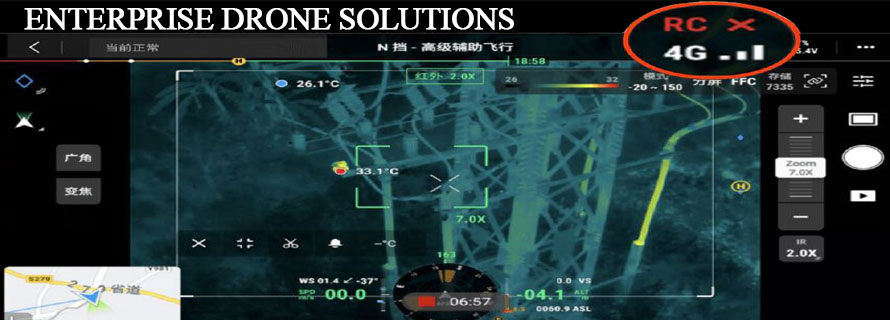ASTM D4809 Test Method for Heat of Combustion of Liquid Hydrocarbon Fuels
ASTM D4809 Test Method for Heat of Combustion of Liquid Hydrocarbon Fuels by Bomb Calorimeter (Precision Method)
1. Scope
1.1 This test method covers the determination of the heat of combustion of hydrocarbon fuels. It is designed specifically for use with aviation turbine fuels when the permissible difference between duplicate determinations is of the order of 0.2 %. It can be used for a wide range of volatile and nonvolatile materials where slightly greater differences in precision can be tolerated.
1.2 In order to attain this precision, strict adherence to all details of the procedure is essential since the error contributed by each individual measurement that affects the precision shall be kept below 0.04 %, insofar as possible.
1.3 Under normal conditions, the test method is directly applicable to such fuels as gasolines, kerosines, Nos. 1 and 2 fuel oil, Nos. 1-D and 2-D diesel fuel and Nos. 0-GT, 1-GT, and 2-GT gas turbine fuels.
1.4 Through the improvement of the calorimeter controls and temperature measurements, the precision is improved over that of Test Method D240.
1.5 The values stated in SI units are to be regarded as standard. No other units of measurement are included in this standard.
1.6 This standard does not purport to address the safety concerns, if any, associated with its use. It is the responsibility of the user of this standard to establish appropriate safety and health practices and determine the applicability of regulatory limitations prior to use. For specific warning statements, see Section 7, 10.6, A1.7.1 and Annex A3.
2. Referenced Documents
2.1 ASTM Standards:
D129 Test Method for Sulfur in Petroleum Products (General Bomb Method)
D240 Test Method for Heat of Combustion of Liquid Hydrocarbon Fuels by Bomb Calorimeter
D1018 Test Method for Hydrogen In Petroleum Fractions
D1193 Specification for Reagent Water
D1266 Test Method for Sulfur in Petroleum Products (Lamp Method)
D2622 Test Method for Sulfur in Petroleum Products by Wavelength Dispersive X-ray Fluorescence Spectrometry
D3120 Test Method for Trace Quantities of Sulfur in Light Liquid Petroleum Hydrocarbons by Oxidative Microcoulometry
D3701 Test Method for Hydrogen Content of Aviation Turbine Fuels by Low Resolution Nuclear Magnetic Resonance Spectrometry
D4294 Test Method for Sulfur in Petroleum and Petroleum Products by Energy Dispersive X-ray Fluorescence Spectrometry
D5453 Test Method for Determination of Total Sulfur in Light Hydrocarbons, Spark Ignition Engine Fuel, Diesel Engine Fuel, and Engine Oil by Ultraviolet Fluorescence
E1 Specification for ASTM Liquid-in-Glass Thermometers
E144 Practice for Safe Use of Oxygen Combustion Bombs
E200 Practice for Preparation, Standardization, and Storage of Standard and Reagent Solutions for Chemical Analysis
3. Terminology
3.1 Definitions:
3.1.1 gross heat of combustion - expressed as megajoules per kilogram. The gross heat of combustion at constant volume of a liquid or solid fuel containing only the elements carbon, hydrogen, oxygen, nitrogen, and sulfur is the quantity of heat liberated when a unit mass of the fuel is burned in oxygen in an enclosure of constant volume, the products of combustion being gaseous carbon dioxide, nitrogen, sulfur dioxide, and liquid water, with the initial temperature of the fuel and the oxygen and the final temperature of the products at 25°C. Gross heat of combustion (see Note 1) is represented by the symbol Qg.
NOTE 1 - Users of this test method desiring to calculate Δ H° for a pure compound should note that corrections must be applied to the value of Qg for buoyancy of air, heat capacities of reaction components, reduction to a constant-pressure process, and deviations of the reaction from the thermodynamic standard state. In any comparison of measurements on pure compounds with those cited in these compilations, the user of this test method should realize that impurities of various kinds, including water and foreign hydrocarbons may cause significant effects on the values obtained for particular samples of material.
3.1.2 net heat of combustion - expressed as megajoules per kilogram. The net heat of combustion at constant pressure of a liquid or a solid fuel containing only the elements carbon, hydrogen, oxygen, nitrogen, and sulfur is the quantity of heat liberated when a unit mass of the fuel is burned in oxygen at a constant pressure of 0.101 MPa, the products of combustion being carbon dioxide, nitrogen, sulfur dioxide, and water, all in the gaseous state, with the initial temperature of the fuel and the oxygen and the final temperature of the products of combustion at 25°C. The net heat of combustion is represented by the symbol Qn and is related to the gross heat of combustion by the following equation:
Qn (net, 25°C) = Qg (gross, 25°C) - 0.2122 x H
where:
Qn (net, 25°C) = net heat of combustion at constant pressure, MJ/kg,
Qg (gross, 25°C) = gross heat of combustion at constant volume, MJ/kg, and
H = mass % of hydrogen in the sample.
3.1.3 energy equivalent (effective heat capacity or water equivalent) - the energy equivalent of the calorimeter expressed as joules per degree Celsius, J/°C.
NOTE 2 - The energy equivalent may be expressed in any energy unit and any temperature unit so long as the value is used consistently throughout the calculations.
3.2 Units:
3.2.1 Temperatures are measured in degrees Celsius.
3.2.2 Time is expressed in minutes and decimal fractions thereof. It can be measured in minutes or seconds, or both.
3.2.3 Masses are measured in grams. No buoyancy corrections are applied except to obtain the mass of benzoic acid.
3.2.4 The energy unit of measurement employed in this test method is the joule with the heat of combustion reported in megajoules per kilogram (Note 3).
1 MJ/kg = 1000 J/g
NOTE 3 - In SI the unit of heat of combustion has the dimension J/kg, but for practical use a multiple is more convenient. The MJ/kg is customarily used for the representation of heats of combustion of petroleum fuels.
3.2.5 The following relationships may be used for converting to other units:
1 cal (International Table calorie) = 4.1868 J*
1 Btu (British thermal unit) = 1055.06 J
1 cal (I.T.)/g = 0.0041868 MJ/kgA
1 Btu/lb = 0.002326 MJ/kgA
1 atm = 0.101325 MPa
* Conversion factor is exact.



